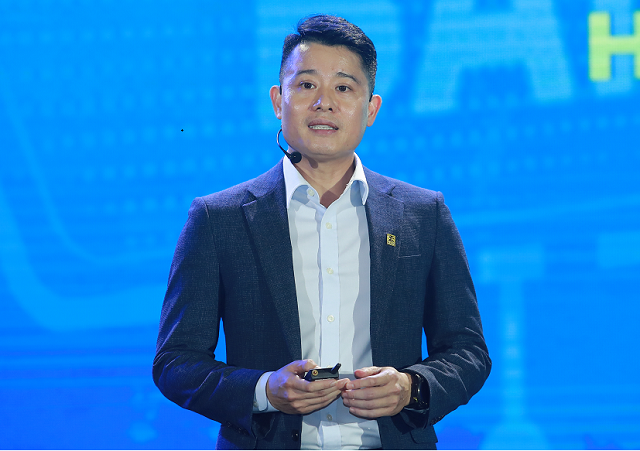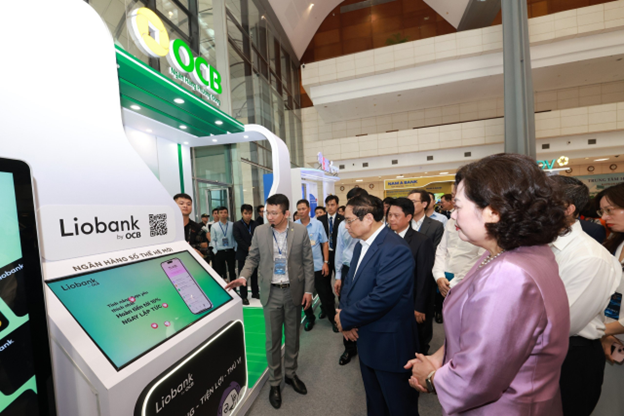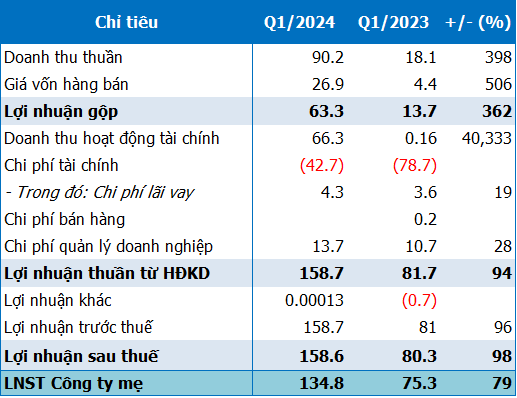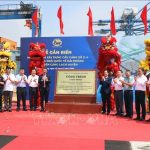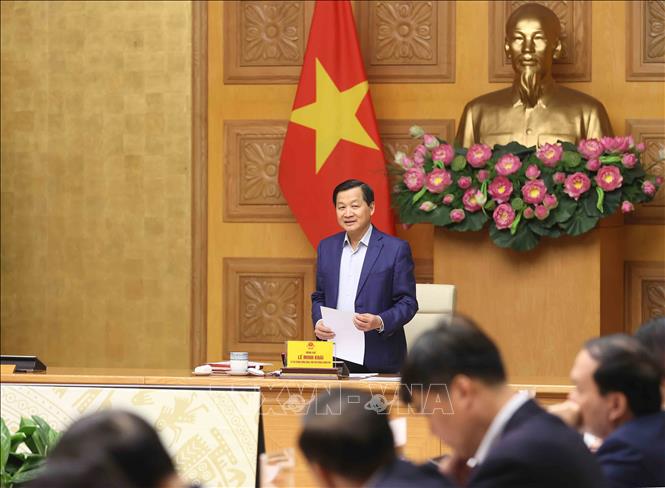
Deputy Prime Minister Le Minh Khai, Head of the Steering Committee addressed. Photo: An Dang / TTXVN
Deputy Prime Minister Le Minh Khai emphasized, “The current plan is administrative in nature and unclear. The root of the problem is a lack of comprehensive approach and incomplete evaluation. With this solution, it may take a few more years to complete the processing.” The Prime Minister’s instructions and the Steering Committee’s instructions have not been closely followed.
Deputy Prime Minister pointed out that comprehensive solutions need to be employed in order to address the issue. Currently, there is no consensus among the relevant entities. Therefore, a viable solution cannot be found. In order to preserve and restructure DQS, a clear solution and an assessment of the results achieved are necessary. The processing plan must comply with legal regulations. Due to its unique mechanism, the opinions of competent authorities are required.
Recognizing that handling DQS is difficult, Deputy Prime Minister stated that due to the passage of several years, the valuation of assets has not been fully completed, and settlement of assets has not been finished. There is a significant deficit in capital and accumulated losses, and the assets do not reflect their true value. Therefore, restructuring is very challenging. In the past period, PVN has acted actively in handling the situation.
Deputy Prime Minister proposed to the State Capital Management Committee in Enterprises to carefully consider and conduct complete research on the opinions of members of the Steering Committee, finalize the plan, and report to the Government Standing Committee by no later than March 25th. Accordingly, the plan needs to be reevaluated and the most optimal solution should be proposed. The plan must be feasible and effective, while minimizing losses and waste, and the procedural sequence must be clear. The relevant units must be persistent, receptive, and considerate in dealing with this difficult work.
The report from Vietnam Oil and Gas Group (PVN) shows that DQS is currently the only unit within the Group with the function of shipbuilding, ship repair, and watercraft repair, and it has many advantages, development potential, and participation in the value chain of PVN in its strategy of becoming an energy industrial conglomerate. Replacing the aging fleet is a great opportunity for DQS to increase repair and shipbuilding output.
The restructuring of DQS aims to strengthen its financial situation, enhance its competitiveness and production capacity, contribute to the recovery of the Vietnamese shipbuilding industry, train human resources for the Vietnamese shipbuilding industry, and participate in the implementation of the Government’s energy transition strategy.
According to Ho Sy Hung, Deputy Chairman of the State Capital Management Committee in Enterprises, based on market assumptions, utilizing 100% of DQS’s capacity and existing proposals to address current limitations and obstacles, PVN expects to achieve two scenarios for production and business results from 2023 to 2035.
In the first scenario, by restructuring and only investing in docks and auxiliary items, the average revenue from 2023 to 2025 is about VND 1,313 billion per year, and the average profit is about VND 64 billion per year.
In the second scenario, by restructuring and investing in docks and auxiliary items, as well as ship demolitions, the average revenue is about VND 1,499 billion per year, and the average profit is about VND 65 billion per year.
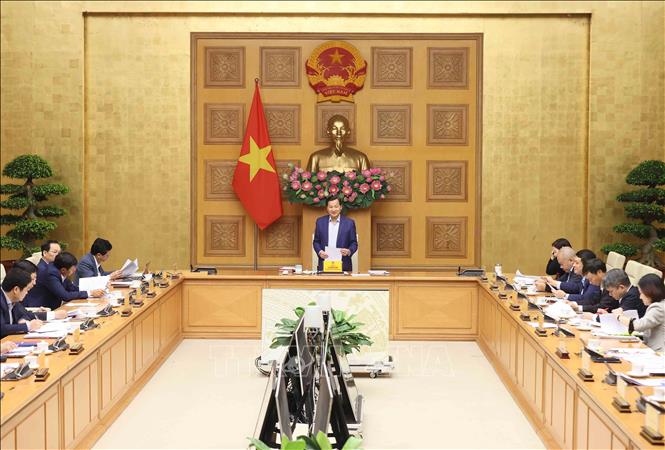
Scene of the meeting. Photo: An Dang / TTXVN
The Government Standing Committee, the Prime Minister, and Deputy Prime Minister Le Minh Khai have issued numerous directions. The Committee has held meetings and issued several documents requesting that PVN provide explanations, incorporate the opinions of members of the Steering Committee and relevant agencies, and complete the proposal for the direction and solution to address DQS.
PVN has proposed three restructuring plans for DQS. However, according to the opinions of relevant ministries, sectors, and units, the proposed plans from PVN have not met the requirements. The feasibility and optimal solutions, as well as the complete resolution and termination of the restructuring plan for DQS, have not been clearly determined. The parties involved have not reached a consensus regarding the proposed plan, timing, and reporting data, special mechanisms, debt resolution plans, and especially with lenders and related contractors.
According to Mai Thi Thu Van, Deputy Head of the Government Office, the DQS restructuring plan has been included in the 2024 work program of the Politburo, the Party Central Committee, and is scheduled to be submitted to the Political Bureau in the second quarter of 2024. According to the report of the State Capital Management Committee in Enterprises, the process of developing a plan to resolve DQS has lasted for 10 years, across three terms of the Steering Committee, with PVN making multiple adjustments to the proposed plan.
Mai Thi Thu Van stated that PVN’s proposal is to restructure the enterprise, and to do so, special mechanisms are required. However, both the Committee and PVN have not yet provided clear legal grounds, defined the authorities and policy mechanisms, or reported the proposal to the Prime Minister and Deputy Prime Minister – Head of the Steering Committee for resolution. The Committee and PVN need to be more proactive and resolute, earnestly implementing the Government’s directions. The construction of the DQS restructuring plan falls within the jurisdiction and direct responsibility of PVN, with the supervisory responsibility of the State Capital Management Committee in Enterprises – the representative agency of the owner as stipulated by law.
The representative of the Ministry of Finance also stated that PVN’s proposal has not clarified the feasibility and optimization of the restructuring plan, nor has it worked with the relevant parties to reach a consensus on the proposed plan, reporting data, and relevant procedures.
Representatives from PVN shared that immediately after receiving Vinashin’s assets, DQS went bankrupt because the company was unable to repay its due debts. The assets transferred from Vinashin did not correspond to its core business or PVN’s development strategy. Many of the assets were unable to contribute to the production and business processes. Throughout the years, PVN has used various resources and strategies to manage and maintain DQS’s production and business activities. If accounting for the assets involved in the production and business activities, DQS has been effectively operating since being transferred to PVN.
Based on the evaluation, comparison of different options (including bankruptcy, recovery and restructuring, and auction according to legal regulations), the operating results in recent years, research on market evaluation, the plan has clearly stated that the restructuring plan is feasible and causes the least harm to the state and related businesses.























